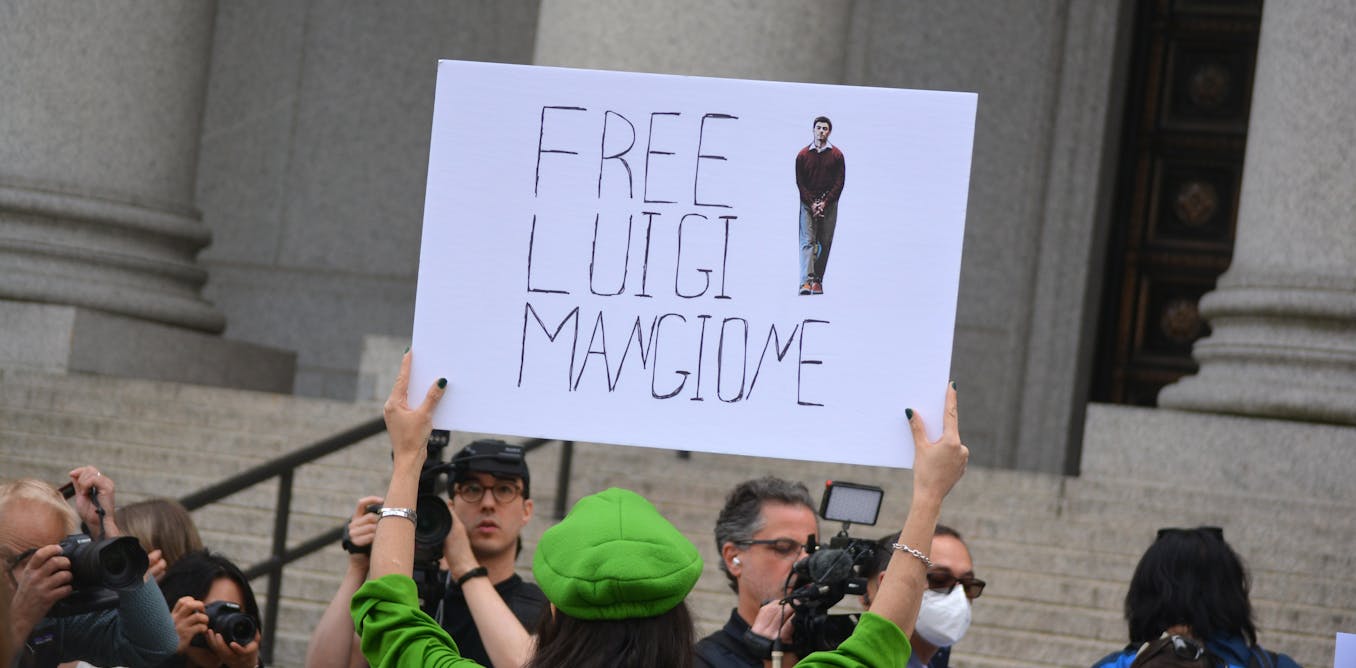Science
Workplace Burnout Linked to Acceptance of Extremist Violence, Study Finds

The arrest of Luigi Mangione for the alleged murder of the CEO of UnitedHealthcare in December 2024 has sparked significant public debate. Notably, a recent study reveals a concerning connection between workplace burnout and the acceptance of extremist attitudes. This research, featured in the American Psychological Association’s special issue on “Understanding Violent Extremism,” highlights how emotional exhaustion can lead individuals to justify extreme actions.
Mangione’s actions were met with mixed reactions, particularly among younger adults. Polls indicated that as many as 41% of young people found the murder acceptable, prompting researchers to explore the psychological underpinnings of such sentiments. The study suggests that workplace burnout, a phenomenon affecting a staggering 75% of employees, may play a pivotal role in fostering extremist thinking.
The Link Between Burnout and Extremism
The study involved daily surveys from over 600 employees, who recorded their burnout symptoms, emotional states, and attitudes toward violence. Findings indicated a notable correlation: on days when employees reported higher levels of burnout, their sympathies towards extremist ideologies intensified. Feelings of fear, sadness, and shame often accompanied these spikes in burnout, prompting some to seek meaning in radical beliefs.
Three psychological theories provide insight into this troubling trend. General Strain Theory posits that daily frustrations can lead to violent extremism through negative emotions. The existential model of burnout explains how a lack of meaningful work contributes to feelings of hopelessness, while Significance Quest Theory emphasizes the erosion of personal significance in daily life, pushing individuals toward radical ideologies to reclaim a sense of purpose.
While the study does not claim that all individuals experiencing burnout will resort to violence, it underscores the potential for everyday experiences of burnout to normalize acceptance of extremist views. This distinction is crucial, as the radicalization of opinion—while different from radicalization of action—can significantly undermine social cohesion and democratic values.
The Role of Organizational Support
The research also points to a protective factor against extremist ideologies: perceived organizational support. Employees who felt valued and supported by their employers were less likely to embrace radical beliefs, even when experiencing burnout. However, the effectiveness of this support diminishes once negative emotions take root. Therefore, it is essential for organizations to proactively address burnout.
Employers play a critical role in preventing burnout from escalating into more serious issues. Strategies should include fostering a culture of fairness and transparency, recognizing employee contributions, training managers to identify early signs of burnout, and providing channels for open communication.
Broader societal perceptions of injustice can also intensify extremist sympathies. For instance, the pursuit of the death penalty against Mangione, seen by some as a political maneuver, may exacerbate feelings of systemic unfairness, pushing individuals further toward radical views.
As workplaces and societies face a rise in extremist sentiments, understanding the psychological triggers behind these attitudes is vital. Burnout represents more than just fatigue; it signals an existential vulnerability that can lead individuals to seek meaning through dangerous ideologies.
The consequences of neglecting workplace burnout extend beyond decreased productivity. A workplace that fails to address employee well-being risks creating an environment conducive to radicalization. It is imperative for organizations to recognize that supporting employees goes beyond enhancing job performance—it is essential for maintaining societal stability.
In conclusion, the study illuminates the intricate relationship between workplace burnout and extremist attitudes. As the workforce continues to grapple with emotional strain, it is crucial to foster environments that promote well-being and a sense of purpose. Otherwise, the void left by unaddressed burnout may be filled by ideologies that threaten the very fabric of society.
-

 Entertainment3 weeks ago
Entertainment3 weeks agoAimee Osbourne Joins Family for Emotional Tribute to Ozzy
-

 Politics4 weeks ago
Politics4 weeks agoDanny Healy-Rae Considers Complaint After Altercation with Garda
-

 World1 month ago
World1 month agoHawaii Commemorates 80 Years Since Hiroshima Bombing with Ceremony
-

 Top Stories1 month ago
Top Stories1 month agoFianna Fáil TDs Urgently Consider Maire Geoghegan-Quinn for Presidency
-

 Top Stories1 week ago
Top Stories1 week agoIreland Enjoys Summer Heat as Hurricane Erin Approaches Atlantic
-

 World1 month ago
World1 month agoGaza Aid Distribution Tragedy: 20 Killed Amid Ongoing Violence
-

 World1 month ago
World1 month agoCouple Convicted of Murdering Two-Year-Old Grandson in Wales
-

 World1 month ago
World1 month agoAristocrat Constance Marten and Partner Convicted of Infant Murder
-

 Top Stories1 month ago
Top Stories1 month agoClashes Erupt Between Far-Right Groups and Migrants in Spain
-

 Top Stories1 month ago
Top Stories1 month agoHistoric Dalkey Pub The Queens Reopens Under New Management
-

 World1 month ago
World1 month agoTrump Defends FBI Deputy Director Amid Epstein Files Controversy
-

 Politics1 month ago
Politics1 month agoTragic Crowd Surge at Gaza Aid Center Claims 20 Lives









